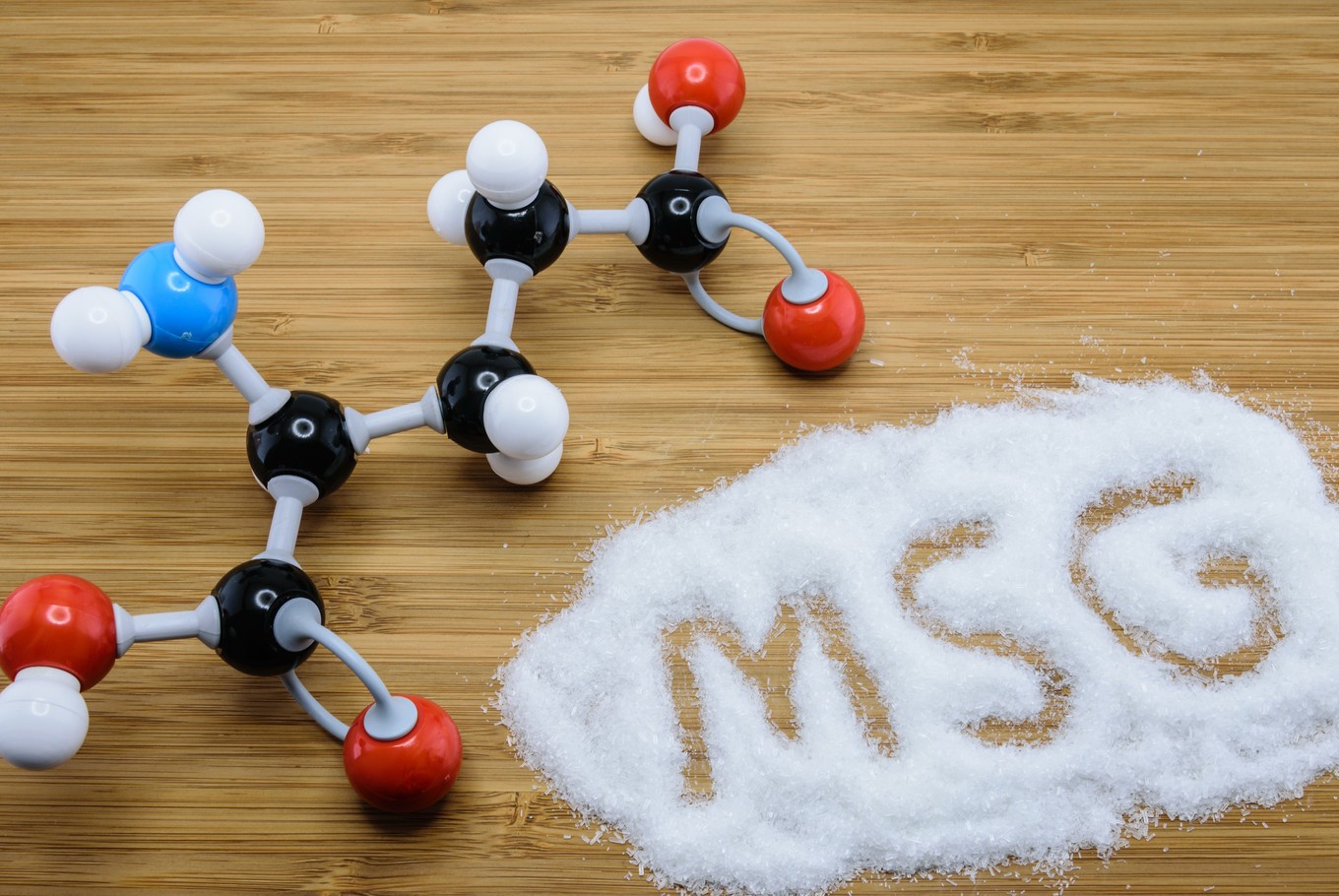Popular Reads
Top Results
Can't find what you're looking for?
View all search resultsPopular Reads
Top Results
Can't find what you're looking for?
View all search resultsThe unpalatable truth about monosodium glutamate
Change text size
Gift Premium Articles
to Anyone
A
neurosurgeon and author of Excitotoxins: The Taste that Kill, Dr. Russell Blaylock, has said that monosodium glutamate (MSG) is an excitotoxin (a toxin overexcites the cells to the point of damage or death) that can lead to varying degrees of brain damage and may even trigger or worsen learning disabilities, Alzheimer’s disease, Parkinson’s disease, Lou Gehrig’s disease and more.
He also said that numerous glutamate receptors had been found both within the heart's electrical conduction system and the heart muscle itself. MSG can be damaging to the heart and may even explain the sudden deaths sometimes seen among young athletes.
MSG, also known by its various brand names -- Accent and Ve-tsin --, is a chemical compound that is used as a flavor enhancer, especially in Asian cuisine. It can be found in processed meats, canned vegetables, soups etc. It is so common that we may be consuming it without our knowledge; but to what extent can this chemical compound damage our body? This is what the article aims to clarify.
MSG is made up of approximately 78 percent free glutamic acid, 21 percent sodium and up to 1 percent contaminants. The compound was introduced about 100 years ago and quite a number of people have reported a range of symptoms that have been termed Chinese Restaurant Syndrome or MSG Symptom Complex.
(Read also: McDonald's tests McNuggets without artificial additives)
Studies from the 1970s suggested that 25 percent to 30 percent of American citizens were intolerant of MSG in food. Some experts have estimated that this figure has gone up to 40 percent today.
Some of the possible reasons that have been postulated to be responsible for the sensitivity of some people to MSG include autism, Gilbert's Syndrome, use of alcohol, compromised liver, CoQ10 deficiency, epilepsy, fibromyalgia, hypoglycemia, magnesium deficiency, Parkinson’s disease, pre-existing allergies, Type I Diabetes and Vitamin B6 and B12 deficiencies.
MSG Symptom Complex comprises symptoms such as numbness, burning sensations, sweating, tingling, facial pressure or tightness, chest pain or difficulty breathing, headache, flushing, nausea, rapid heartbeat, drowsiness and weakness. Regular consumption of MSG has also been linked to various adverse effects ranging from obesity, eye damage, headaches, fatigue and disorientation to depression.
Readers will be surprised to know that glutamic acid, which is another form of MSG, is naturally found in products such as soy sauce, fermented bean paste, cheese and yeast extract. This is probably the reason why the resulting symptoms have been termed Chinese Restaurant Syndrome, since these are some of the basic ingredients in Chinese cooking.
(Read also: 5 things to consider before a detox diet)
It will be useful for readers to know that manufacturers may mask the ingredient using another name. Hidden names can include (but are not limited to) autolysed yeast, calcium caseinate, Calcium glutamate (E623), gelatin, glutamate (E620), glutamic acid (E620), hydrolyzed protein, monopotassium glutamate (E622), Monoammonium glutamate (E624), Magnesium glutamate (E625), Sodium glutamate (E621), sodium caseinate, textured protein, yeast extract, yeast food and yeast nutrient. It is best to stay away from any food items containing the ingredients listed in the above if one knows for sure that one is allergic to MSG.
There are also food items that contain free glutamate that is formed when proteins are broken down. Free glutamate can combine with free sodium to form MSG.
Food items that contain naturally occurring free glutamate are not required to be labeled. It would therefore be useful for readers to know that the list includes tomatoes, grapes, fruit juices, potatoes, peas, cheese (parmesan and rocquefort), mushrooms etc. Perhaps readers who are intolerant to MSG would want to watch out for any reaction the next time s/he consumes these items.
In certain foods, glutamic acid is formed during processing and there is no way to know that these foodstuffs contain glutamic acid just form the label. The food industry knows very well that consumers these days are aware of the effects of MSG and does its best to avoid any food item containing MSG, so they would be better off labeling the content with another name. However, a rose by any other name is still a rose. Similarly, arsenic by any other name is still arsenic.
(Read also: WHO: Diabetes rises fourfold over last quarter-century)
The Food and Drug Administration (FDA) still holds that MSG is safe to be consumed despite the fact that they themselves have admitted that MSG Symptom Complex can take place in asthmatics and those whom have ingested large amounts of MSG.
"Abnormal function of glutamate receptors has been linked with certain neurological diseases, such as Alzheimer's disease and Huntington's chorea. Injections of glutamate in laboratory animals have resulted in damage to nerve cells in the brain,” stated the agency on August 31, 1995.
There are even dozens of pharmaceutical drugs that have been suggested to interfere with MSG intake.
More unbiased scientific researches need to be carried out to investigate the various effects of MSG. These claims and many others ought to be researched without any commercial biasness instead of unscientifically brushing them off as "without evidence" for the health of at least those special groups of people who are sensitive to MSG.
**
Genevieve Tan Shu Thung runs an online holistic living magazine, which publishes articles related to holistic living at http://www.holisticlivingannex.com.
---------------
Interested to write for thejakartapost.com? We are looking for information and opinions from experts in a variety of fields or others with appropriate writing skills. The content must be original on the following topics: lifestyle ( beauty, fashion, food ), entertainment, science & technology, health, parenting, social media, and sports. Send your piece to community@jakpost.com.











